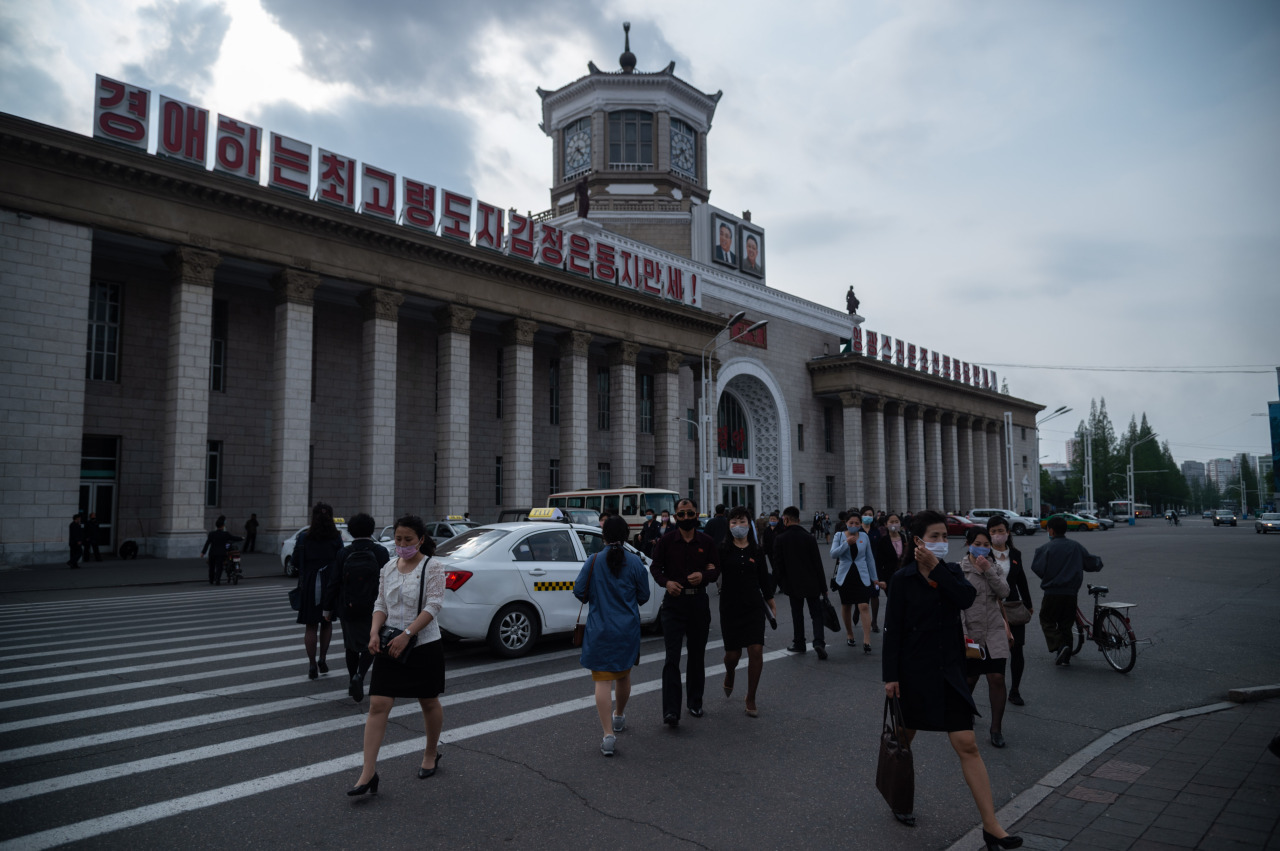 |
(AFP-Yonhap) |
North Korea is presumed to be facing a shortage of around 860,000 tons of grain this year amid worries that the coronavirus pandemic could aggravate the situation, a unification ministry official said Tuesday.
The projection is based on an earlier estimate by a local state-run institute that the North produced around 4.64 million tons of grain last year, which was below the 5.5 million tons widely believed to a minimum amount needed to feed its 25 million people.
"This year, the North will likely face a shortage of some 860,000 tons of grain," the official told reporters on condition of anonymity.
North Korea claims to have had a bumper harvest last year, but it has been suffering from chronic food shortages caused by unfavorable weather and crippling global sanctions restricting its access to fertilizer and other key farming materials.
Compounding the situation is the North's decision to close its border with China in late January to block the spread of the coronavirus, which observers expect to hamper grain imports.
"It is too early to gauge the impact of the coronavirus on the North's grain production but it appears to be significantly disrupting imports of materials, including grains from outside," the official said.
He added North Korea is showing no signs of easing its border closure and that the food shortage situation in the country is expected to continue.
The gloomy predictions came after the Food and Agriculture Organization (FAO) projected in a report that around 183 million people in 47 countries, including North Korea, are facing the possibility of severe food insecurity as border closures and disruptions in global supply chains have restricted their access to farming products.
"While the COVID-19 pandemic is devastating lives, public health systems, livelihoods and economies across the world, populations living in food crisis contexts and those whose resilience has been eroded by previous crises are particularly exposed to its effects," the FAO said.
"Globally, the COVID-19 pandemic is already directly affecting food systems through impacts on food supply and demand, and indirectly through decreases in purchasing power, the capacity to produce and distribute food, and the intensification of care tasks, all of which will have differentiated impacts and will more strongly affect the poor and vulnerable," it added.
The agency noted, "There is a serious risk that people will experience famine conditions if needs are not met," saying that around $350 million will be required "to ensure the provision of critical assistance where there are already high levels of need."
It did not provide details on situations in North Korea, such as how many people are facing food shortages.
In March, the FAO designated North Korea as a country facing a food shortage, while the World Meteorological Organization, another UN agency, projected that around 10 million people in the country will require urgent food assistance.
North Korea's media outlets have recently ramped up calls for "food self-reliance" as the rice transplanting season has gone into full swing. (Yonhap)




![[Herald Interview] 'Trump will use tariffs as first line of defense for American manufacturing'](http://res.heraldm.com/phpwas/restmb_idxmake.php?idx=644&simg=/content/image/2024/11/26/20241126050017_0.jpg)


![[Health and care] Getting cancer young: Why cancer isn’t just an older person’s battle](http://res.heraldm.com/phpwas/restmb_idxmake.php?idx=644&simg=/content/image/2024/11/26/20241126050043_0.jpg)
